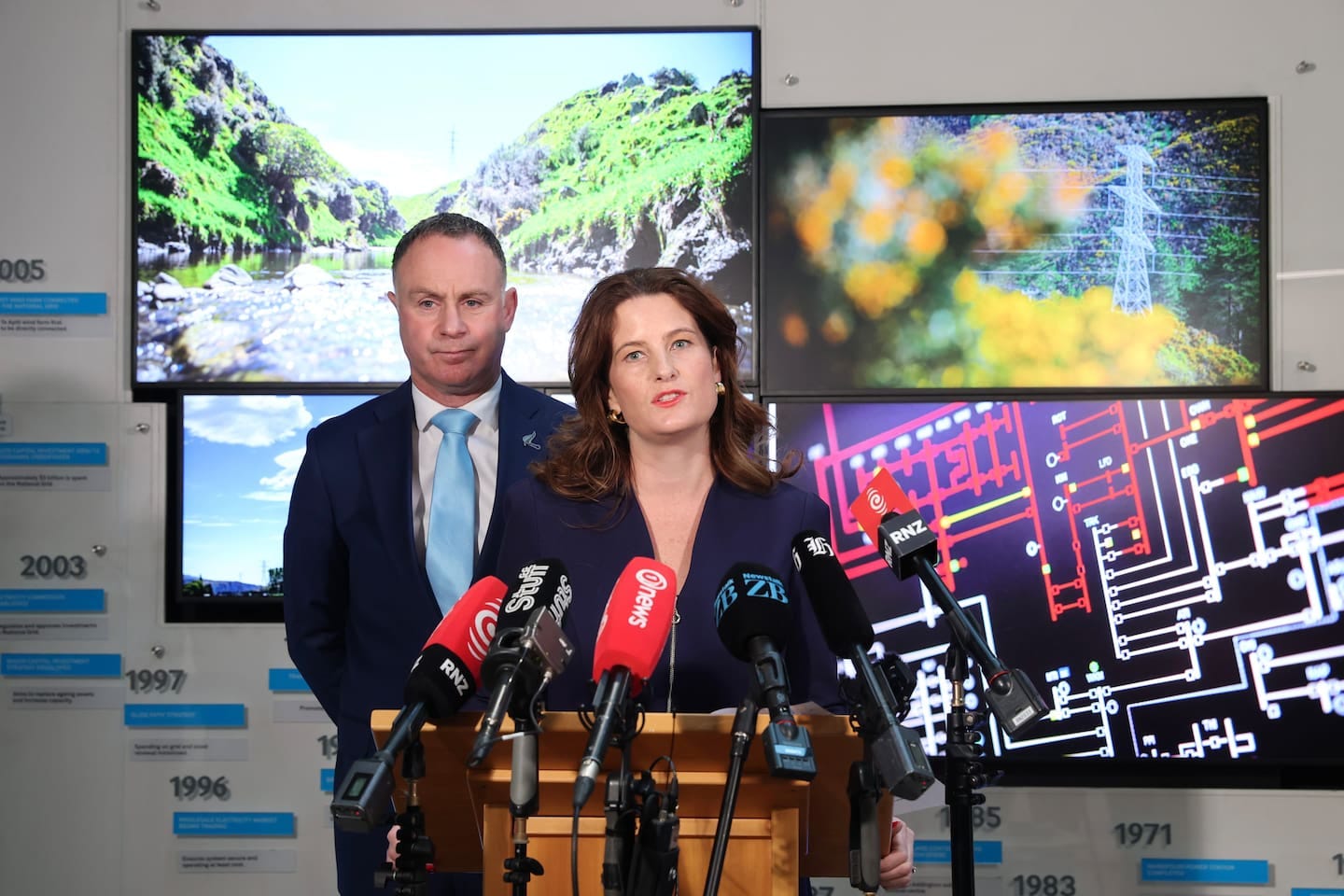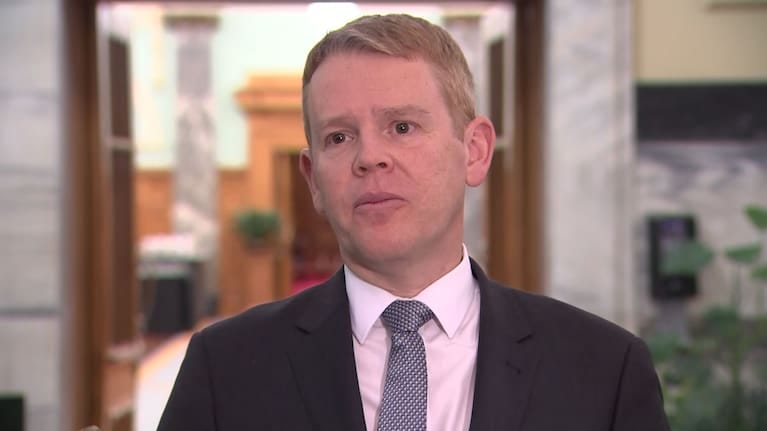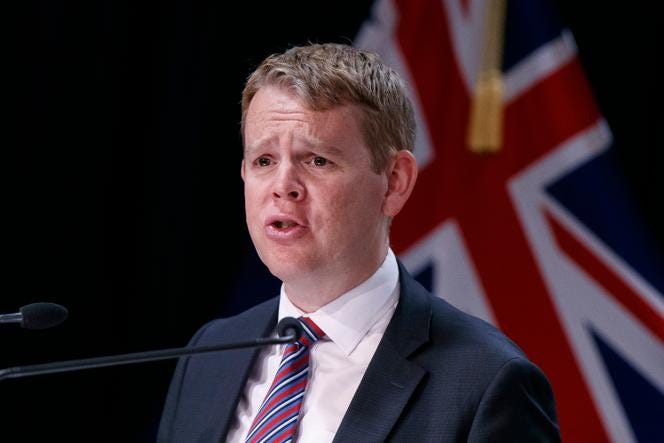New Zealand’s energy system is teetering on a knife-edge. Households are paying record-high power prices, industries are losing faith in supply security, and investors are quietly shelving projects because they don’t like unnecessary insecurity and fear rising costs. Today, the Government has unveiled its response to the Frontier Economics review of the electricity market which is a 270-page report warning that, without bold action, dry-year risk could “drive industry out of New Zealand.”
The NZ Herald reports that the Government will strengthen the Electricity Authority, boost Transpower’s role in forecasting and risk monitoring, and begin procurement for an LNG import facility to provide backup during dry years. It has also committed to issuing a “Request for Information” to the energy sector, asking how government demand could help unlock new investment. These are welcome steps. But they stop short of the decisive action needed to restore confidence. The Government has clearly rejected calls for the Crown to take a more active role in securing dispatchable thermal capacity or to divest its gentailer shareholdings; moves that could have unlocked billions in private investment.

Meanwhile, RNZ reported that the Government’s package follows months of consultation and intense pressure from industry, who warned that energy insecurity is fast becoming one of New Zealand’s biggest economic risks. The Commerce Commission, according to Interest.co.nz, is “provisionally satisfied” with a plan for Huntly Power Station to form the backbone of a new “strategic energy reserve.” It’s an overdue acknowledgment that intermittent renewables alone cannot guarantee reliability. And Stuff highlighted what businesses have been saying for years: persistently high prices are the inevitable result of “underinvestment in new supply.”
Finance Minister Nicola Willis framed the reforms as about “securing New Zealand’s energy future”. She said:
“I have written to the Crown’s Mixed Ownership Model (MOM) companies (Genesis, Mercury and Meridian) to say that the Crown is prepared to support capital funding requests for strategic and commercially rational investments that support energy security.
This is to ensure a perceived lack of access to Crown capital does not stand in the way of New Zealand’s energy security.”
Nicola Willis’ comment that the Government is “committed to maintaining its legally mandated 51 per cent stake in the MOM companies” misses a key recommendation from the Frontier Economics review. The review explicitly recommended that the Crown consider selling down part of its holdings in the mixed-ownership model gentailers to free up capital and allow them to raise funds more flexibly for new generation and storage projects. By doubling down on political ownership, Willis is signalling that the Government’s priority is control, not capacity. Her comments today are a defensive statement, designed to reassure the noise makers in the media and opposition, rather than investors. In practice, this approach traps capital on the Crown’s balance sheet and limits the sector’s ability to respond quickly to energy shortages. By refusing to entertain even a partial divestment, Willis is choosing optics over outcomes.
The Government is tinkering around the edges of a system that suffers from chronic uncertainty in large part because they are handicapped by time. Every generation project, every upgrade, every storage facility, takes years to plan and finance. Without clarity about where energy policy is heading, investors will not take the plunge. And it must be said that in this the current Government cannot be held responsible.
The blame lays squarely at Labour’s feet and its refusal to provide desperately needed certainty.
Chris Hipkins has ruled out supporting offshore gas exploration for the next decade. It’s a decision that may earn applause from the Greens, but it sends a chill through anyone contemplating serious investment in New Zealand. The reality is that the private sector cannot manage political risk of that magnitude. The Frontier Economics review itself warned that “the stroke of a pen,” like Ardern’s oil and gas ban, could wipe out billions in value. That warning has gone selfishly unheeded.

By refusing to commit to a stable energy framework, Labour isn’t holding the government to account; it’s holding the entire country hostage. Businesses can’t plan, investors can’t model returns, and households will be left to foot the bill when the next dry year bites. Policy volatility drives costs up and it frankly appears Labour don’t give a rat’s behind.
In a recent letter to Chris Hipkins, Prime Minister Christopher Luxon made an appeal for cross-party stability, warning that “if Labour reinstated a ban on offshore gas exploration, it might pose an insurmountable barrier for some investors.” He reminded Hipkins that “you have said previously that, if elected, Labour will not spend its time ‘pausing, cancelling, and reviewing everything’,” and added: “But bipartisanship must be more than a political slogan. Hence, I am writing to seek a commitment from the Labour Party to support offshore exploration for natural gas for at least the next 10 years.” Instead of answering that plea in a respectful, constructive dialogue, Hipkins chose to turn it into a media opportunity, labelling Luxon’s bipartisan outreach a “desperate attempt” and attacking him publicly. That reaction reveals not a statesman’s instinct to safeguard continuity in a vital national sector, but a reflex to score political points.

It’s also profoundly irresponsible for Labour to pretend that a return to its oil and gas ban would somehow make New Zealand “greener.” It won’t. The demand for energy doesn’t vanish when exploration stops. It just forces us to look offshore for supply. We end up importing coal from Indonesia or LNG from elsewhere, burning dirtier fuels than we would have produced domestically. Hipkins is content to export emissions in order to pretend to care about the environment.
If Labour truly wanted to decarbonise responsibly, it would focus on secure transitions, phasing down fossil fuels over time while expanding renewables, not banning supply before replacement capacity exists. The point of a green transition is to replace fossil energy, not just shift where we get fossil fuel from.
So what exactly is Chris Hipkins trying to achieve? Is he playing to the dysfunctional and incoherent Greens, who have turned energy policy into a morality play? Or is he simply trying to deny the Government any bipartisan cover, ensuring that National bears the political fallout for price rises and black outs? Either way, it’s a betrayal of New Zealand’s long-term interests. The Greens will always hover around ten percent in the polls. They are not ever going to be coalition partners to National. There is no strategic logic in chasing their approval at the cost of New Zealand’s energy stability.
The consequences of this political brinkmanship are real. High energy costs erode competitiveness and drive inflation. Manufacturers can’t expand in a market where electricity prices spike unpredictably. Investors eyeing data centres, processing facilities, or storage projects will simply go elsewhere. Families already struggling with grocery bills and mortgages will see their power bills climb further. And New Zealand’s international reputation as a safe, reliable, forward-thinking place to do business will fade fast.
The truth is that energy uncertainty is economic uncertainty. It is social uncertainty and national vulnerability. A country that cannot power itself reliably cannot grow, attract investment, or meet its own climate commitments. Stability, not ideology, is the foundation of sustainability.
The Government’s package at least begins the hard work of rebuilding that stability. But without bipartisan support, it may not last beyond a single term. That’s the tragedy of our current politics: even when progress is made, it’s built on sand.
Labour’s refusal to engage constructively is reckless. It is not leadership to stand on the sidelines and sneer at attempts to shore up supply. Nor is it climate action to drive investment offshore. And it is not good opposition to simply oppose for opposition’s sake.
New Zealand needs energy policy that lasts longer than the next news cycle. It needs courage, clarity, and collaboration. If Chris Hipkins and Labour cannot offer that, if they prioritise politics over pragmatism and what is best for New Zealand, then they are a large part of the problem.
Ani O'Brien comes from a digital marketing background, she has been heavily involved in women's rights advocacy and is a founding council member of the Free Speech Union. This article was originally published on Ani's Substack Site and is published here with kind permission.


6 comments:
This should be a stark and irrefutable warning to all NZers about Labour's dangerous and politically-motivated intentions.
But will fickle and ill informed voters get this message ?
Any hopes Simon Watts is more honest than Nicola Willis just flew out the window.
The energy reform is a crock and Simon Watts avoidance of Ryan bridges astute questions this morning was embarrassing.
Where is Luxon?
One gets the impression the PM, who started by telling us he will solve kiwis high food and electricity prices, has been beaten by the nefarious national party players who installed a talentless finance minister, Luxon would never have promoted into the position.
Do not be too surprised if National did a deal with the greenies. They did a deal with the Maori party in their last stint at the treasury benches!
We are where we are in our energy situation stemming from quite a few years of disjointed and incompetent political planning. It seems inevitable, if this present state continues, that every aspect of our national condition will deteriorate. This must be the direct result of electing into powerful positions individuals who may be best described as incompetent morons. Perhaps this is a harsh judgement on the voting public, but justified noting that about 10% vote Greens, another 25%+ vote Labour. Truly we get the govt we deserve.
This country will not prosper without more baseload generation, not tinkering with the small amount we currently have, not investing in more renewables, not talking nicely to gentailers, not fiddling with demand side management.
Use our topography to advantage and build more hydro capacity and gas/coal as a backup. Not rocket science.
Post a Comment
Thank you for joining the discussion. Breaking Views welcomes respectful contributions that enrich the debate. Please ensure your comments are not defamatory, derogatory or disruptive. We appreciate your cooperation.